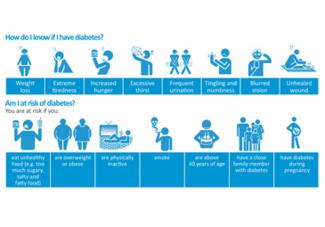
Message from the Pacific Community Director-General, Dr Colin Tukuitonga
The Pacific Islands region has among the highest rates of diabetes and obesity in the world. We are the epicentre. The extent of these and other non-communicable diseases (NCDs) in our region is viewed as a human, social and economic crisis.
On 7 April, we join the world in marking World Health Day. This year, diabetes is the theme for the first time: ‘Beat Diabetes: Scale up prevention, strengthen care and enhance surveillance’.
This World Health Day aims to increase awareness of the rise in diabetes and its staggering burden and consequences globally; and to trigger a set of specific, effective and affordable actions to tackle this disease. These include steps to prevent diabetes, improve diagnosis, and to treat and care for people with diabetes.
Diabetes is a chronic disease characterised by elevated levels of blood sugar which, over time, may lead to serious damage to the heart, blood vessels, eyes, kidneys and nerves, causing serious and potentially deadly complications such as heart attacks, stroke, blindness, kidney failure, nerve damage and impotence, as well as infections and foot ulcers that can lead to amputations.
In the Pacific, the likelihood of you having a family member or acquaintance with diabetes is extremely high. Together we can change this, because the most common form of diabetes in our region is type 2, which is preventable.
Simple lifestyle measures can reduce the risk of diabetes, such as maintaining your body weight, engaging in regular physical activity, and eating a healthy diet. Diabetes can also be controlled and managed to prevent complications. Improved access to diagnosis, self-management education, affordable treatment and compliance to medication, as well as practicing healthy lifestyles are vital components of the response.
As the region’s principal scientific and technical organisation, the Pacific Community (SPC) plays an active role in supporting our member countries and territories to scale up prevention actions through the implementation of the Pacific NCDs Roadmap. Endorsed by Pacific leaders in 2014, the roadmap report contains a menu of multi-sectoral interventions suited to the Pacific.
SPC is actively engaged at a high-level of political and sectoral leadership to positively influence policy dialogue and to build awareness of the role of different sectors in responding to the NCDs crisis.
Efforts to prevent and treat diabetes will be important to achieve the global Sustainable Development Goal target of reducing premature mortality from NCDs by one third by 2030. Many sectors of society in the Pacific have a role to play in fighting diabetes, including governments, health professionals, manufacturers, civil society, churches, the media and individuals themselves – and that means you.
We would like to encourage everyone in the Pacific to support World Health Day by raising awareness of diabetes, its debilitating consequences and steps to prevent it.
SPC is committed to working together with our member countries and territories, and our partners, to invest expertise and mobilise a sustainable whole-of-SPC, whole-of-government and whole-of-society approach in turning the tide on the NCDs epidemic, especially for diabetes in the Pacific.
Media contact: Jean-Noel Royer, SPC Communication Officer, jeannoelr [at] spc.int (jeannoelr[at]spc[dot]int)
WORLD HEALTH DAY IS ON THURSDAY 7 APRIL 2016. Visit the official WHO website
